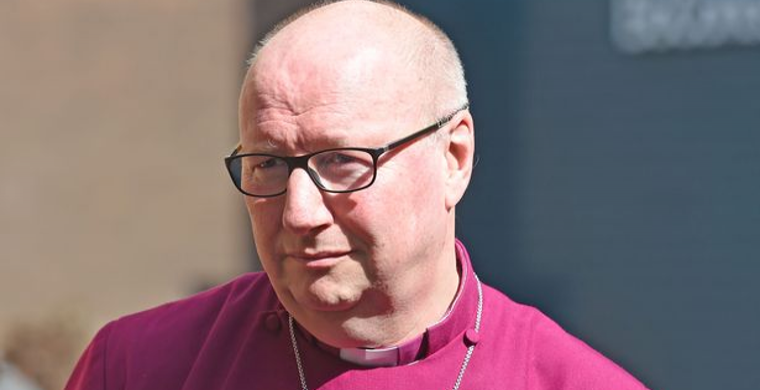Cash-strapped Liverpool furloughs clergy
By Pat Ashworth
https://www.churchtimes.co.uk/
April 2020
VOLUNTEER curates from across the diocese of Liverpool will start a four-week period of furlough on Monday, in a move intended to mitigate the financial impact of the coronavirus crisis and ease pressure on the parish share.
The diocese has already furloughed staff at the diocesan offices, St James' House, via the Government's Job Retention Scheme (JRS). But this Liverpool pilot scheme for clergy, using the JRS, is a first for the Church of England.
In a statement issued on Friday, the diocese emphasised the voluntary nature of the scheme. It said it was able to consider assistant curates because of the technical legal status of their ministry. The diocese stated: "It is not a value judgment on the ministry of individuals, or of curacy in general. Nor is it a judgement on the parishes. And if a curate or their training incumbent has not wanted to be furloughed then that is perfectly fine."
The pilot scheme is described as "a limited action with a limited aim". Any decisions about furloughing other clergy would be made in consultation with colleagues, parishes, and worshipping communities -- and, crucially, only after assessing the pilot scheme. "We have considered this very prayerfully and carefully," the statement said.
"Through this we will be able to explore the impact of taking an absolutely key group of people out of frontline ministry, so that if we had to take similar measures in the future when the situation would undoubtedly be more acute for us, we will know the best way to do this to serve and protect our ministers, lay people, and churches."
Liverpool is a small diocese with limited historical reserves. Its biggest source of expenditure is the stipendiary budget, and the action of furloughing curates is part of a package that aims to save £0.5 million over the next three months, which include salary sacrifice at St James' House.
The diocese had always sought to be realistic about the financial challenges it faced, the statement said. It praised the generosity of parishes which, while facing their own challenges, had offered advances on their parish-share payments. It aimed "not simply to survive for a short period of time. We have to look at all ways in which we not only come through this crisis but have a platform to be able to continue to build the Church and sustain a Christian presence."
Mike Eastwood, diocesan secretary, commented: "Whilst fundamentally this crisis is a health crisis and we must all stay safe, if we are to maintain a Christian presence into the future, the steps we take now are crucial. The willingness of so many people to take a step in partnership with our diocese is tremendous."
The Bishop of Liverpool, the Rt Revd Paul Bayes, said: "This is new territory for us and the national Church. I continue to thank God for the way in which colleagues in the diocese are exploring a range of different approaches to the present crisis, including this one.
"As with so many aspects of this situation, we have been humbled by the gracious and generous way in which these efforts have been received and by the understanding shown."
Liverpool is also in constructive talks with the national Church about how it can be supported. At the end of March, the Church Commissioners and Archbishops' Council announced a package of interim measures to help dioceses and cathedrals struggling with their finances. A sum of £75 million was made available in short-term liquidity funding (News, 2 April).
It was intended to stabilise the situation, while the National Church Institutions (NCI) gained evidence of how hard-hit each diocese and cathedral had been. The package also provided for a three-month delay in the dioceses' monthly payments to the Commissioners to cover clergy stipends, the balance to be paid over the next year.
Reports from other dioceses have confirmed that diocesan and cathedral staff have been furloughed. Peterborough is among those paying furloughed staff 100 per cent of their salaries while seeking the Government's 80-per-cent funding. Some parishes in the diocese were worrying about funding, but others had paid the whole year in advance to help with cash flow, the Bishop of Peterborough, the Rt Revd Donald Allister, said this week.
"Longer term, we look forward to, and will need, retrospective help from the NCIs, as this crisis will severely deplete our limited reserves."
Manchester diocese is among those to have taken up the emergency funding from the Church Commissioners and Archbishops' Council, with early receipt of the full Lower Income Communities Funding normally paid over a year.
The diocese expects to use some of the other short-term funding facilities offered by the national Church over the coming months.
"Many parishes in our diocese are already financially vulnerable, and the Covid-19 crisis will undoubtedly exacerbate these challenges," the Bishop of Manchester, the Rt Revd David Walker, told the Church Times this week.
"It's not a question of making concession to parishes with this. It is a matter of fact that many of them simply will not have the funds to pay parish share, given that they have already been operating with very low levels of reserves.
"The longer the lockdown goes on, the more acute the financial pressures on parishes and therefore the diocese will be."
VOL FOOTNOTE: A source told VOL that most dioceses were already at rock bottom before the virus - now they stand to lose 8-10 weeks' income from the cash collections at church services. The source told VOL that Bishop Bayes is off the Richter Scale theologically. "I don't regard him as a bishop." He is a huge supporter of Jayne Ozanne a foremost British lesbian.














